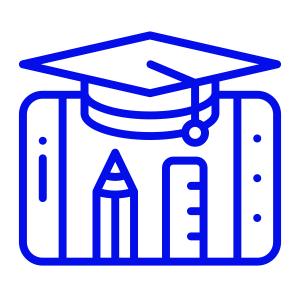Why Study Engineering?
Engineering is an exciting profession, but one of its greatest advantages is that it will leave you time for all the other things in your life that you love. A qualification in engineering is your ticket to an exciting career, filled with adventure and exploration. Engineering takes teamwork, and you will collaborate with all kinds of people inside and outside the field. Whether they are designers or architects, doctors, or entrepreneurs, you will be surrounded by smart, inspiring people.One of the biggest attractions of studying engineering is wide variety of tasks and environments in which engineers find themselves working.
Pathway to Australian Permanent Residency
Step: 1Achieve a qualification in Engineering (Certificate / Diploma / Bachelors) |
Step: 2Get your skill assessment from Engineer Australia |
Step: 3Lodge your EOI at once you acquire sufficient work experience and PR points |

Step: 4Get invited to apply for one of the permanent visa options |
Engineering graduates along with other sectors of engineering are in high demand and are consistently listed in MLTSSL and CSOL. Few of the professions included in Engineering are Civil Engineers, Electrical Engineers, Materials Engineers, Mechanical Engineers, Plant Engineers and Telecommunication Engineers. An assessment procedure by a relevant recognized authority is mandatory as apart of visa application for migration purpose or work sponsorship.
Courses Offered, a student may take in the field of Engineering
- Certificate IV in Electronics and Communication
- Diploma of Engineering
- Advance Diploma of Electronics and Communications Engineering
- Advanced Diploma of Information Technology- Cyber Security
- Advanced Diploma of Telecommunications Network Engineering
- Bachelor’s Degree (with specializations)
- Master’s Degree (with specializations)
Professional Year Program
The Professional Year in Engineering Program helps engineering graduates develop and enhance their employability skills, which employers demand. It provides practical training and workshops as well as access to career development tools and methods along with extensive learning. It is a 44-week course including 32 weeks of coursework and 12 weeks of internship.
An Engineering PYP graduate is eligible an additional 5 points towards Australia Permanent Residency.
ANZSCO Codes: 2633 group, 3122 & 3132 groups, and others.
| Occupations include: | Skill List | Potential Visa types |
| 313212- Telecommunications Field Engineer
313213- Telecommunications Network Planner 313214- Telecommunications Technical Officer 263311- Telecommunications Engineer 263312- Telecommunications Network Engineer 312211- Civil Engineering Draftspersons 312311- Electrical Engineering Draftsperson 312212- Civil Engineering Technician |
MLTSSL | 189 – Skilled Independent (subclass 189)
190 – Skilled Nominated (subclass 190) 407 – Training visa (subclass 407) 485 – Temporary Graduate (subclass 485) 489 – Skilled Regional (Provisional) visa (subclass 489) – Family nominated 489 – Skilled Regional (Provisional) visa 482 – Temporary Skill Shortage 187 – Regional Sponsor Migration Scheme |
What services does Telecommunications Engineering Provide?
- Design, construct, install, service and support telecommunications equipment, systems, and facilities.
Telecommunications Engineering Professionals tasks include
- Planning, designing, building, configuring, and commissioning telecommunications devices
- Networks and systems, such as voice, radio, two-way, data, microwave, satellite, and digital data systems, and ensuring telecommunications systems interconnect with equipment from different manufacturers, service providers and users
- Compiling engineering project proposals to define goals, identify scope, background, and need, and ascertain cost of equipment, parts, and services
- Evaluating and procuring new products and services from vendors
- Ensuring compliance with laws, regulations, policies, and procedures in the provision of telecommunications systems
- Selecting and developing new telecommunications sites by locating sites, filing documents, drawing up documents for approval, drafting construction drawings and following through to approval
- Determining appropriate configurations of telecommunications hardware and software, ensuring desired performance of telecommunications equipment
- Preparing and interpreting specifications, drawings, and regulations for the use of telecommunications equipment
- Determining the type and arrangement of circuits, transformers, circuit-breakers, transmission lines and equipment
- Identifying and analysing problems and needs of existing telecommunications systems, such as interference, intelligibility, and clarity, to determine the most appropriate means of reducing, eliminating, and avoiding current and future problems and improve communications
- Monitoring telecommunications systems to assess need for updates, upgrades, enhancements, preventive maintenance, and new systems
- Assessing performance levels of system hardware and software to project future needs, and developing short- and long-terms plans for updating equipment, adding capabilities, enhancing existing systems and providing improved telecommunications
What services does Civil Engineering Draftspersons and Technicians provide?
- Assist in civil engineering research, design, construction, operations, and maintenance.
Civil Engineering Drafts persons and Technicians tasks include
- Preparing sketches, charts, tabulations, plans and designs for civil engineering works such as drainage, water supply, sewerage reticulation systems, roads, airports, dams, bridges, and other structures
- Performing and directing fieldwork and laboratory testing
- Interpreting work assignment instructions, applying appropriate procedures, and selecting equipment
- Collecting and analysing data, and carrying out computations
- Estimating material costs and ensuring finished works are within specifications, regulations, and contract provisions
- Inspecting civil engineering works, and organising and supervising maintenance and repair work
- Conducting field and laboratory tests of construction materials and soils, and collecting data for traffic surveys
Specializations Include
- Signals Officer (Army)
- Communications Consultant
- Communications Specialist (ICT)
- Telecommunications Consultant
- Telecommunications Specialist
- Civil Engineering Design Draftsperson
- Plumbing Engineering Draftsperson
- Road Design Draftsperson
- Sewage Reticulation Drafting Officer
- Structural Engineering Drafting Officer













